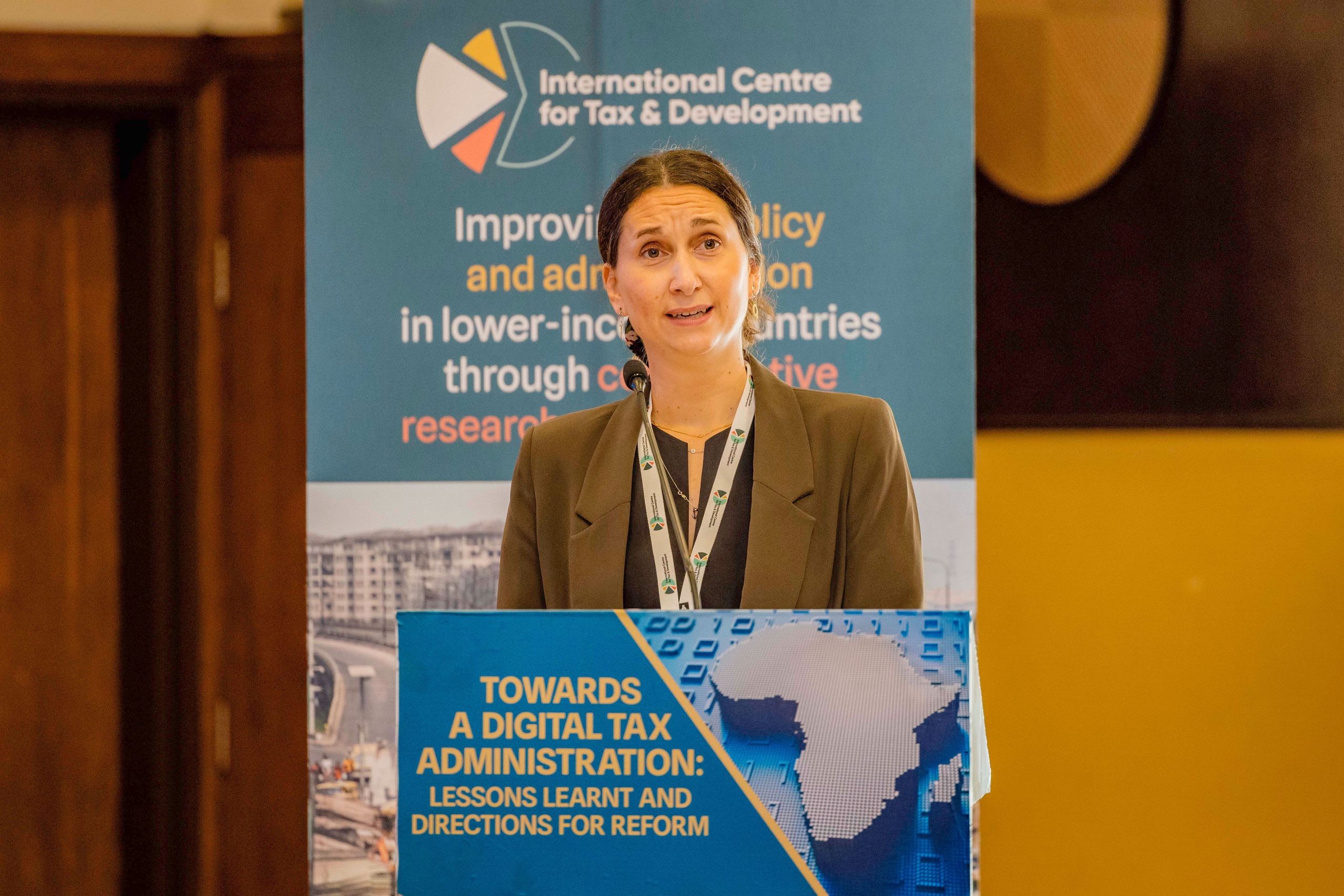Policymakers, scholars and tax experts from Africa and beyond are meeting in Kigali to discuss critical aspects that will shape the future of digital transformation in tax administration.
The two-day conference that started on Thursday, December 12, was organized by the International Centre for Tax and Development (ICTD) in partnership with Rwanda Revenue Authority (RRA) under the theme: “Towards a digital tax administration: Lessons learnt and directions for reform.”
Tax experts delved on adopting artificial intelligence (AI) to enhance the efficiency and effectiveness of their systems.
Antoine Sebera, the Government Chief Innovation Officer at the Rwanda Information Society Authority (RISA), emphasized the transformative role of AI highlighting Africa’s rapid digital transformation, with governments leveraging technology to bridge economic disparities, foster inclusion, and enhance public administration by streamlining bureaucratic processes and building trust.
In Rwanda, significant progress has been made in digital governance, with all essential government services now accessible online. The country aims to achieve universal access to e-government services by 2029.
Despite the advancements, Sebera said challenges persist in leveraging technology for tax administration. He observed that fragmented and incomplete data hinder accurate tracking and assessment of digital transactions, necessitating secure data-sharing mechanisms and interoperability. Additionally, deploying advanced tools for monitoring, analyzing, and enforcing tax compliance, he said, requires technological expertise and infrastructure.
“Building capacity in data analytics, artificial intelligence, and cybersecurity is essential in overcoming these obstacles. Particularly, AI has a very big potential to revolutionize digital tax administration and governance in low-income countries,” Sebera said.
“AI can significantly improve the efficiency and effectiveness of tax systems. For example, AI-driven tools can help identify patterns of tax evasion, optimize resource allocation and provide real-time support to the taxpayers,” he added.
He called for international partnerships with organizations and the private sector to address challenges hindering digitalization progress.
Sebera stressed that ethical and regulatory concerns, such as data privacy, algorithmic bias, and accountability, should not be overlooked.
“Developing countries must establish robust legal frameworks and ethical guidelines to govern the use of AI in public administration. Infrastructure challenges, including reliable internet access, electricity, high-performance computing servers, and data centers must be addressed.
Rwanda has made significant progress in digitalizing its tax administration. Notable milestones include the introduction of the Automated System for Customs Data (ASYCUDA) ++ system in 2004, later upgraded to ASYCUDA World in 2012, which halved customs clearance times and saved $6.8 million annually in trade costs, according to the TradeMark East Africa. ASYCUDA is a computerized customs management system that covers most foreign trade procedures.
In 2011, Rwanda Revenue Authority (RRA) launched the E-Tax system to revolutionize tax filing and payments, reducing errors and administrative burdens. The 2013 introduction of Electronic Billing Machines (EBMs) enhanced VAT compliance and curbed tax evasion. The EBM2 system upgraded in 2017 provide real-time data capture and improved fraud prevention.
“Between 2017 and 2022, VAT collection increased by 61%, and income tax collection has surged by 95%. In 2021, income tax overtook PAYE as the second largest revenue contributor, driven by the use of EBM in every taxable activity, a policy initiated in 2020,” said the RRA Commissioner General, Ronald Niwenshuti.
Studies conducted by RRA and the Tax Administration Research Centre further demonstrate the impact of digital reforms. For example, VAT increased by 5.4% in tax-to-GDP ratio, and EBM2 adoption led to a 12% rise in VAT collection among new users. Firms using EBM-supported goods achieved an average revenue increase of $33,400 compared to non-users.
These advancements reflect Rwanda’s progress toward self-reliance, the RRA CG said. Today, domestic revenue fund over 54% of the national budget, up from 51.2% the previous year. “This aligns with national strategies such as Vision 2020, Vision 2050, and the National Strategy for Transformation,” Niwenshuti added.
Giulia Mascagni, the Executive Director of the International Centre for Tax and Development (ICTD), commended Rwanda’s leadership in digital tax transformation.
She highlighted the 10-year collaboration between ICTD and Rwanda, which has facilitated data sharing for rigorous research, policy analysis, and evaluation, contributing to improved revenue collection and taxpayer services.
Mascagni emphasized the importance of digitization in tax administration, which enabled the ICTD to explore emerging trends in digital financial services, mobile money, and their implications for tax administration.
“This conference is an opportunity to learn from one another and lay the foundation for the next decade of progress in digitizing tax administration and government services,” Mascagni concluded.
During the two-day conference, panelists with explore key elements related to Other data management and governance, digital inclusion, digital public infrastructure, improving data quality and integrity, digital payments, data exchange systems; and underscored the need for robust tax ecosystems that foster fairness and innovation.
The ICTD is a global research body on tax and development, particularly in low-income countries, providing governments with robust evidence to help them design and implement more effective and equitable tax systems.


Your blog is a shining example of excellence in content creation. I’m continually impressed by the depth of your knowledge and the clarity of your writing. Thank you for all that you do.